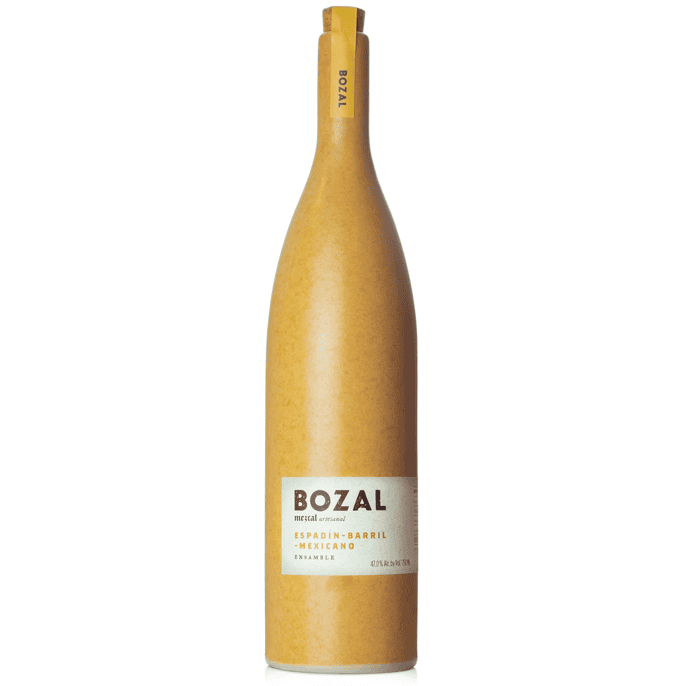
Bozal Ensamble Mezcal 94 Proof
agave
Espadín
The Espadín agave, known as the genetic Mother of the Blue Weber Agave, is used to produce tequila, and is also the predominant agave used in mezcal production. Unique in itself, the characteristics of this agave showcase the aromas of wet earth, a rich smokiness on the mid-palate, and a finish reminiscent of wild flowers.
Barril
This thick-foliaged, wild agave, often used as fencing to divide land in Oaxaca, intensifies the complexity of this mezcal. As citrus and floral notes arise, hints of green peppers compliment the nose. The palate is a delightful balance of citrus and creamy banana.
Mexicano
The Mexicano agave thrives in the moist environment of lower elevations. This wild agave can grow quite large and is usually harvested when close to ten years of age. The concentration of sugar in the fully mature agave produces an extremely powerful mezcal. The palate is distinctively herbaceous and earthy with a long lasting finish in the mouth.
taste
A slightly smoky, yet herbaceous undertone rests on the center of the palate, while citrus and floral notes from the Barril are introduced and strengthened by the warm viscose finish of the Mexicano. This is a light and easy sipping mezcal, which will delight and surprise you with its complex lingering finish.
Craft, artisan, handmade Mezcal to the extreme. Celebrating the unchartered side of the Mezcal world and the wild agaves used to produce such rich spirits.

Explore a World of Spirits and Liquor through our Comprehensive FAQ Section.
Discover a World of Spirits and Liquor in our Helpful FAQ Section.
Types of Spirits
- Whiskey: Made from fermented grain mash and aged in wooden casks.
- Vodka: Typically distilled from grains or potatoes and known for its clear, neutral flavor.
- Rum: Produced from sugarcane byproducts like molasses or sugarcane juice.
- Tequila: Made from the blue agave plant, primarily in the area surrounding Tequila, Mexico.
- Gin: Distilled with botanicals, primarily juniper berries, giving it a distinctive flavor.
Production Process
- Fermentation: The process where yeast converts sugars into alcohol.
- Distillation: Separating alcohol from the fermented mixture to increase its concentration.
- Aging: Storing spirits in barrels to develop flavors over time.
Tasting and Pairing
- Tasting Notes: Learn to identify different aromas, flavors, and textures.
- Food Pairings: Discover which spirits complement various dishes, enhancing the dining experience.
Cocktails and Mixology
- Classic Cocktails: Recipes and techniques for making popular drinks like the Old Fashioned, Martini, and Mojito.
- Mixology Tips: How to balance flavors and create your own cocktail recipes.
History and Culture
Origins: The historical background of different spirits.
Cultural Significance: How spirits are enjoyed and celebrated around the world.

